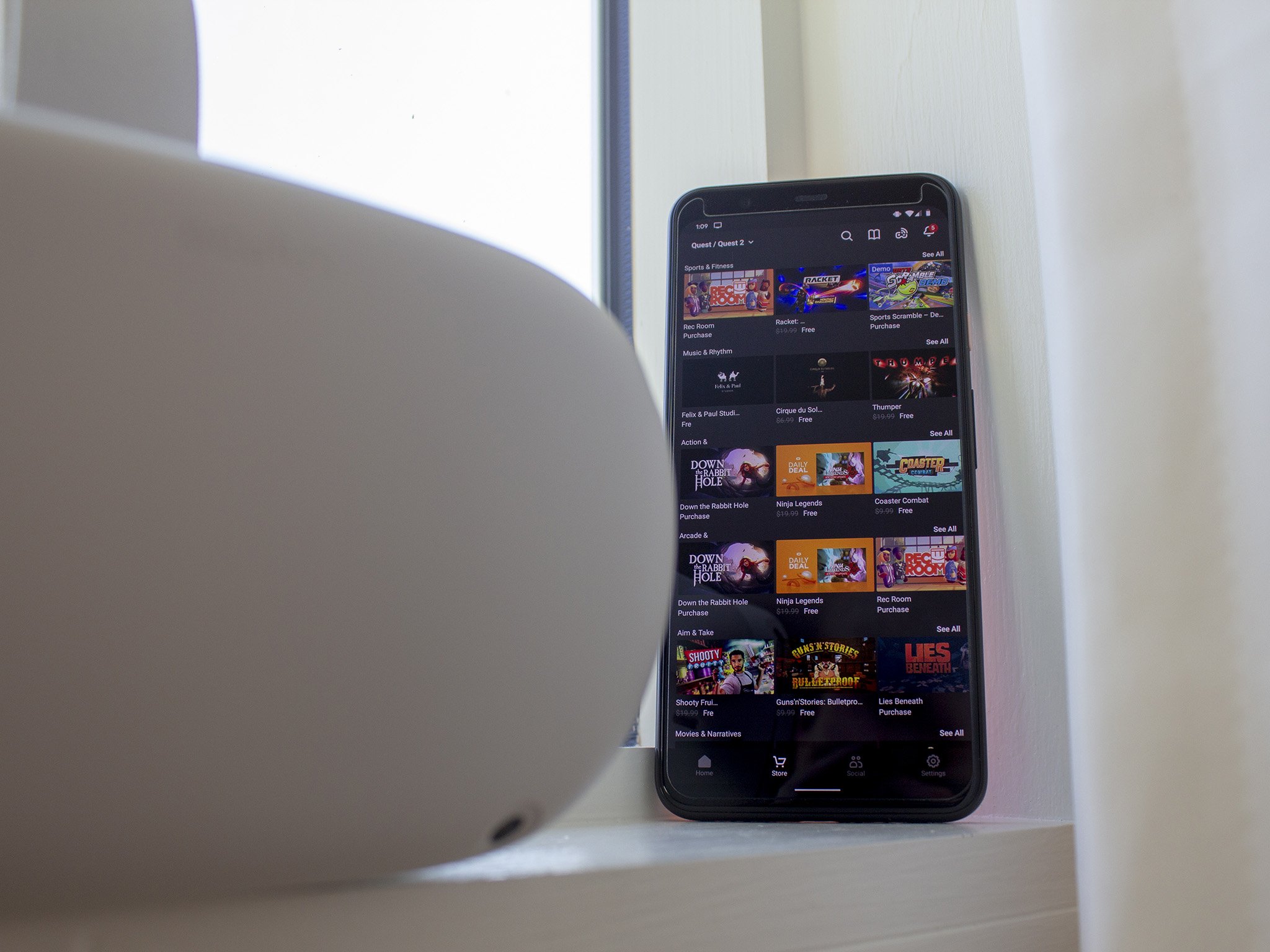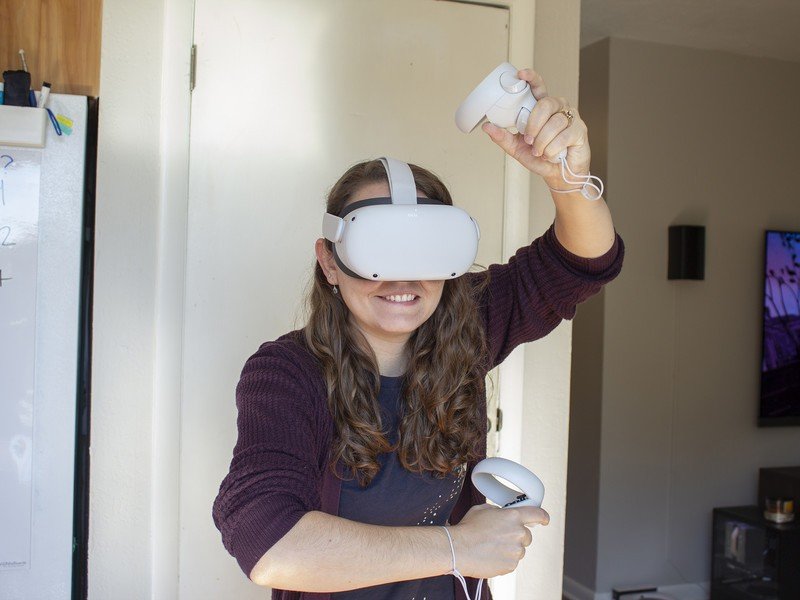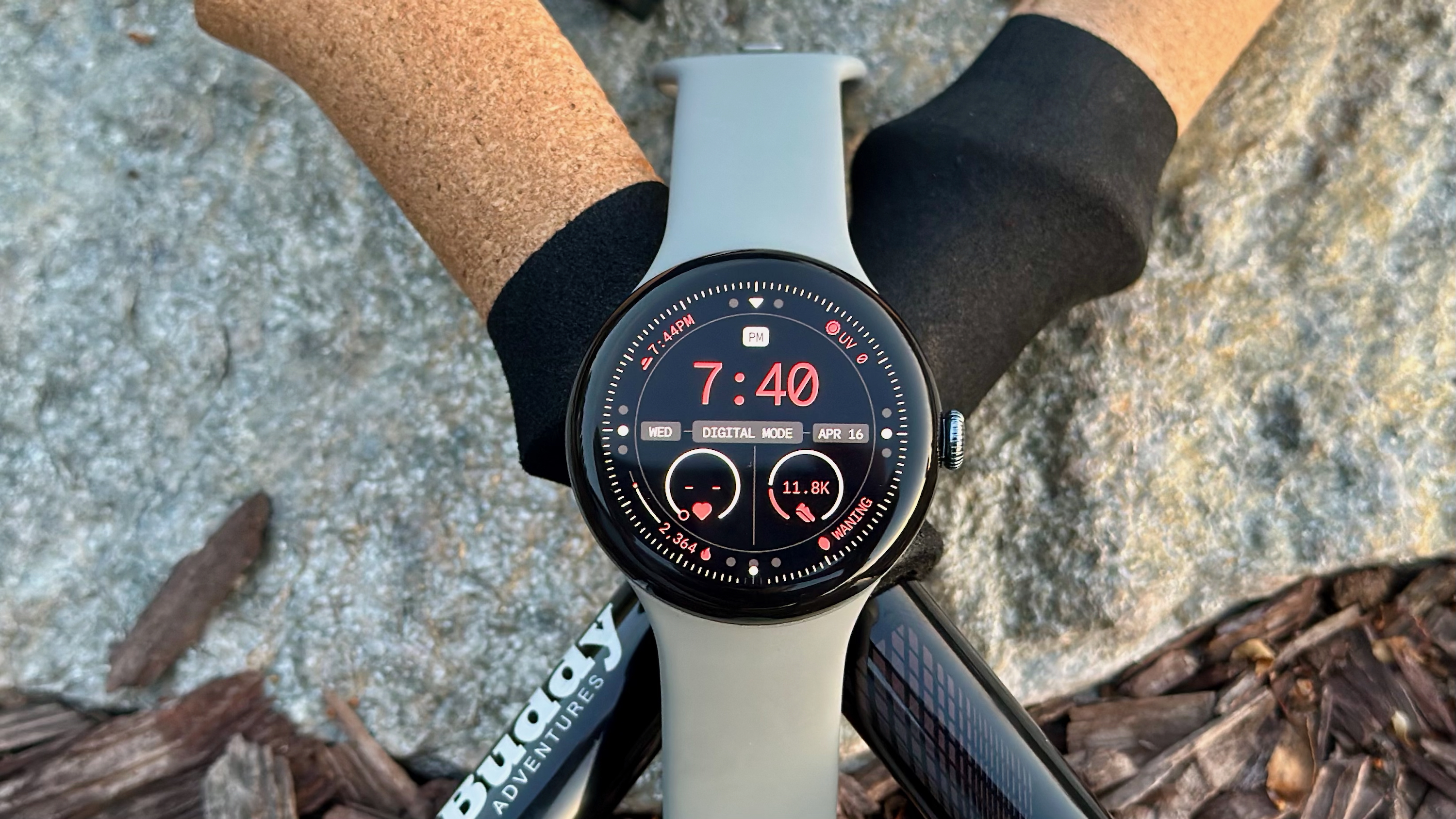Oculus Quest 2 will finally add secondary accounts and app sharing for families

What you need to know
- On the Oculus Developer blog, the company said all Quest store apps would have App Sharing enabled by default on February 13, 2021.
- Primary Quest 2 accounts can share purchased content to secondary accounts on the same headset, or to up to two other Oculus headsets.
- Secondary accounts must be associated with a Facebook account to take advantage of app sharing.
One of the consistently frustrating aspects of owning an Oculus Quest 2 or Quest 1 is that you can only have one Quest account per headset. That means that if your young child wants to play with it, you can't set up a secondary account with parental controls and a limited library that removes mature games. It's safe for kids to play VR games if you're careful, but Oculus doesn't make it easy to be careful.
Thankfully, Oculus has signalled that it will finally let you add secondary accounts to your Quest headset. In an Oculus for Developers blog post, it outlined how the system will work:
"The primary account holder will be able to add secondary accounts to their device and share the apps they purchase with these secondary accounts", the post explains. "Not only will this enable safe sharing, but game progress and achievements will be personalized and saved separately for each account."
You'll be able to add up to three secondary accounts to a primary account on the same headset, and share your apps with all of them. Oculus also plans to let people share their purchases to secondary accounts on other headsets, though this will likely happen much later. Oculus will start by testing multiple users and app sharing in an experimental beta, then roll it out to all Quest users at an unspecified later date.
Technically, Quest app sharing will be optional. Developers have the option to opt out and prevent users from sharing their games, if they do so by February 13th, 2021; however, any new games will have app sharing enabled by default.

We're generally excited by all of this, but the post lists out a ton of caveats to this rule, one of which will truly frustrate parents of younger children. To use app sharing, "the primary account holder and the secondary accounts must each log in to the shared device using their own Facebook accounts".
We knew you need a Facebook account to use Oculus Quest, and that deleting your Facebook account deletes your games, but we'd hoped that secondary accounts wouldn't be held to the same restriction. Now, any child 12 or younger can't make a secondary Oculus account (only 13-year-olds and up can make a Facebook account). They'll have to continue to play on their parents' primary account.
Be an expert in 5 minutes
Get the latest news from Android Central, your trusted companion in the world of Android
Practically every other major console manufacturer or games library has some form of child account and family sharing option. We don't understand why Oculus couldn't bend its Facebook requirement for kids, and let you create secondary accounts that can't purchase anything or access certain content.
Beyond that baffling requirement, Oculus has more practical restrictions for multiple headsets. You can share apps across two Quests, but only if the same primary account is logged into both. Secondary users can access apps shared on the same device, but if you buy your own headset and make your own primary account with your Facebook account, you can't access shared apps from a different primary account.
Otherwise, this will allow families to play multiplayer Quest games together on two headsets after purchasing it just once, which is a great development. We hope this feature is enabled soon, so we can enjoy the best Oculus Quest games with our loved ones.

Michael is Android Central's resident expert on wearables and fitness. Before joining Android Central, he freelanced for years at Techradar, Wareable, Windows Central, and Digital Trends. Channeling his love of running, he established himself as an expert on fitness watches, testing and reviewing models from Garmin, Fitbit, Samsung, Apple, COROS, Polar, Amazfit, Suunto, and more.
